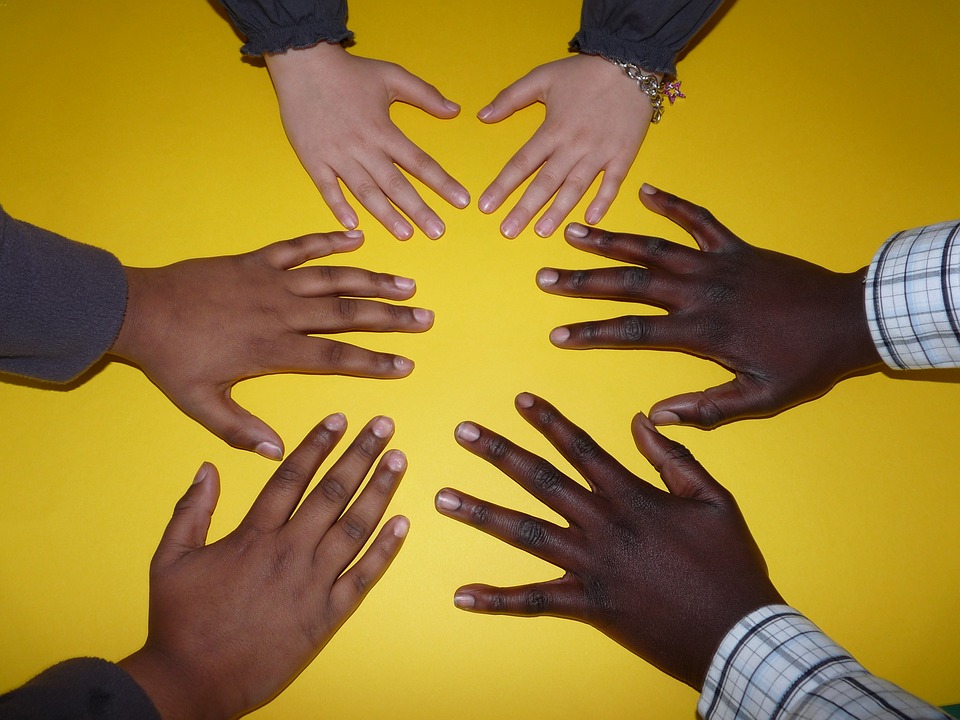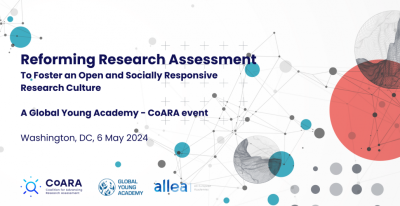
The issue of trust in scientific knowledge, including the role of experts, is publicly debated around the world. Some see worrying signs of falling trust in science in crucial societal areas. The causes of this development are complex. But in an age of “hyperspecialization” (Millgram 2015), trust in scientific knowledge is essential: people simply cannot have expertise in all the areas that are relevant to their lives.
It seems that one of the core issues of the problem is that the general public often knows very little about why it should trust scientists, and how much work and care go into establishing scientific claims.
Members of the Trust in (Young) Scientists working group believe that by better explaining how science actually works, and by showing some of the faces behind the anonymous facade of science, public trust in science can be reinforced.
Website and teaching materials on Trust in Science
Former GYA Advisory Board member Bruce Alberts and colleagues are behind a website on “Why trust Science?”. The website is intended to serve as a repository for material to help the teaching of trust in science and acquaint students with understanding of the scientific method and of how the science community creates reliable knowledge. The authors contend that in an age of constant mis-information, science education must change and must include the explicit teaching of knowledge production, beginning in middle school and extending through college.
To encourage such teaching, the website contains a brief essay on Why Trust Science?, as well as links to free, high-quality teaching tools and other resources for teachers or science education and outreach practitioners.
*******************
For a list of group co-leads since the group was established in 2018, see here.
N/A
In 2024/25, the group will continue to promote the SCISO Project and its outcomes, e.g. through interactive webinars based on the SCISO videos, or at partner organisations’ events.
They are also planning to collaborate with the GYA Science Advice group where relevant, and on aspects relating to Science Diplomacy in particular.
As part of a project on “Trust in Climate and Environmental Science”, group members conducted a systematic literature review and ran an online survey; the dissemination of any findings will happen in the second half of 2024.
Additionally, members of the group have been awarded the 2023/24 GYA Sasha Kagansky Interdisciplinary Grant to work on creating “An interdisciplinary database of ethics dumping cases”, led by group co-lead Mohammad Hosseini (Northwestern University, USA) and former co-lead Leila Niamir (International Institute for Applied Systems Analysis, Austria), with GYA members Muhammad Zaffar Hashmi (University of Lahore, Pakistan), Estrella Díaz Sanchez (University of Castilla-La Mancha, Spain), and alumna Sandra López-Vergèz (Gorgas Memorial Institute for Health Studies, Panama). Part of this project is closely linked to trust in science. Read more about the project here.
Furthermore, group co-lead Nichole Lighthall is conducting a study entitled “Science Learning for the Public”, examing how direct engagement with science through primary research and scientist-led media communication impacts the public’s knowledge, trust in scientists, and behavioral intentions. Group member Amarjargal Dagvadorj proposes to create video content around the topic of “Sexy Science”.
In November 2024, as a side event to the World Science Forum, the GYA, in collaboration with the InterAcademy Partnership, Hungarian Academy of Sciences and the Hungarian Young Academy, hosted a capacity-building workshop for early-career researchers from around the globe. The workshop focused on “Trust in Science” and featured dynamic discussions on the multiple stakeholders who contribute to or erode trust in science, on ethical research practices and on best practices for strengthening public confidence in science. Read more here.
In September 2024, group co-lead Mohammad Hosseini represented the GYA during the Summit of the Future Action Days at United Nations headquarters, New York City, US. During the event, Mohammad participated in a panel discussion on Trust in Science and a side event on Science Diplomacy. Read a full report here.
In June 2024, group co-leads Mohammad Hosseini and Leila Niamir presented a poster on the group’s Ethics Dumping in Research project at the World Conference on Research Integrity in Athens, Greece.
In May 2024, group members co-organised a workshop on “Reforming Research Assessment to Foster an Open and Socially Responsive Research Culture” jointly with the Coalition for Advancing Research Assessment (CoARA) as well as with the GYA working groups on Scientific Excellence and on Open Science. The joint session was part of the GYA Annual General Meeting in Washington DC, USA. You can watch the workshop recording here.

Working group co-lead Mohammad Hosseini presented the work of the group’s project on Ethics Dumping in Research in a “Lightning Talk” at the GYA’s 2024 Annual General Meeting and International Conference of Young Scientists in Washington, D.C., United States.
Working group co-lead Mohammad Hosseini published an item on the “Investigation of Ethics Dumping Cases” in Northwestern University’s monthly newsletter in April 2024.
![]()
In 2020-2023, the group successfully ran a project on “Science ∞ Society: Video tutorials on science ethics and science communication”.
This project started from the observation that although there was a need to reflect on the role of science in society and to contribute to building justified trust in science, many young scientists have no access to training in science ethics or science communication. Going from there, the Science ∞ Society project aimed to create a learning platform with video tutorials and audio podcasts that fill these gaps. They aim at helping (young) scientists think about the societal and ethical dimensions of being a scientist, providing them with conceptual tools to think through these questions, and empowering them to apply these to their own situation.
The project was carried out in collaboration with the German National Institute for Science Communication (NaWik), with funding from the Volkswagen Stiftung.
A first series of videos was launched in June 2021, and a concerted social media campaign by all project partners to spread the project’s outcomes to various stakeholders started in March 2022.
++++++++++++++++++++++++++++++++++++++++++
In May 2023, group co-leads organised a GYA-internal online discussion about Trust in Science Advice together with the GYA Science Advice working group. A brief report and some slides are here.
In January, the group joined forces with the Organization for Women in Science for the Developing World to present the webinar “Science Ethics and Science Communication – what does it mean for you?”. Group co-lead Lisa Herzog and external project leader Kristin Raabe presented the SCISO project to over 60 participants from all over the world and involved them in some interactive exercises about understanding their audience and planning forms of science communication that would allow building trust.
In September, GYA alumna-plus Lisa Herzog (University of Groningen, Netherlands) took part in a two-day meeting with members of the ALLEA permanent working group on science and ethics in Berlin. The task of this ALLEA group is to revise ALLEA’s European Code of Conduct for Research Integrity, an important document that states principles of research ethics. As one of the co-leads of the GYA’s Trust working group, Lisa focused especially on the perspective of young researchers in building trust in science by supporting research integrity.
In June, the group organised an online session on their Science and Society project: “SCISO: behind the scenes of a project” as part of the GYA’s 2022 Annual General Meeting & Conference. The project leads shared insights and lessons learned when running such a large, externally-funded project for the GYA, and the project’s videos were shared.
In March, The International Science Council reported about the group’s “Science ∞ Society” project in its blog here.
In September, group members together with the GYA Global Health working group organised an online panel discussion on “Hardcore science skepticism: what can young scientists do?“.
In June, the group launched the first of a series of videos for their Science ∞ Society project.
In December, the group organised online seminars on “Media Communications”, with documentary filmmaker Nerina Finetto.
As part of the first-ever online GYA Annual General Meeting in June 2020, the group published a video discussing information and informants, reliability and trust and other aspects of science communication. Watch the full video here.
In December, the group offered a two-hour webinar on “Science communication through blogs and video blogs”, organised by the group’s co-lead Lisa Herzog (Netherlands). GYA members and alumni, as well as members from a number of National Young Academies participated.
Working group member Koen Vermeir (France) argued for the importance of historical research for policy making at Oxford University in February 2019. He focused on past stratagems and discussions around fake science and showed that such epistemic considerations have to be understood in their proper context (including social and religious considerations). Historical analysis and contextualization will help to find more nuanced strategies for increasing public trust in science.
Members of this group published a paper on “Academic incentives need to change if we are to build trust in science” in Times Higher Education in February 2019.
The group’s co-lead Lisa Herzog (Germany) participated in the meeting of the ALLEA (All European Academies) working group on “Truth, Trust and Expertise” in August 2018 in Amsterdam, NL.
Following a call by the European Federation of Academies of Sciences and Humanities (ALLEA), group members Lisa Herzog (Germany) and Robert Lepenies (Germany) and GYA alumnus Martin Dominik (UK) participated in a video competition on “Trust in science”. See here for more details and to watch the videos.
During the 2018 GYA Annual General Meeting, a number of GYA members responded to the group’s call and answered questions on the topic of trust in science and others regarding their research activities for filmmaker Nerina Finetto of www.tracesdreams.com. Watch the video on the GYA YouTube channel here.